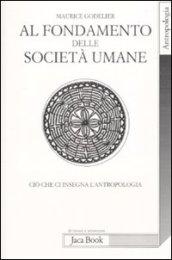
Al fondamento delle società umane. Ciò che ci insegna l'antropologia
Maurice Godelier,
Guendalina Carbonelli
Al fondamento delle società umane. Ciò che ci insegna l'antropologia: Questo libro è il frutto di quarantenni di ricerca dell'antropologo francese più discusso all'estero dopo Claude Lévi-Strauss. L'opera è frutto di un lavoro accurato e sapiente, ma sprigiona ugualmente una straordinaria vis polemica. Alla base delle società umane c'è del sacro. Meglio saperlo, e scoprire il segreto di fabbrica di ciò che in Occidente viene chiamato "politico-religioso", in questi tempi in cui da un lato il legame sociale si allenta e dall'altro una logica identitaria di introversione campanilista sembra avere la meglio su ciò che veramente unisce. Il percorso dell'opera è segnato da quattro tappe principali sul cammino di questa conclusione fondamentale, ognuna delle quali è qui oggetto di un capitolo: ci sono cose che si donano, cose che si vendono e altre che non bisogna vendere né donare ma custodire per trasmetterle; nessuna società è mai stata fondata sulla famiglia o la parentela; ci vogliono sempre più di un uomo e una donna per fare un bambino; la sessualità umana è fondamentalmente asociale. Il nesso sacro-politica emerge qui in modo diverso rispetto alla vulgata oggi imperante nelle scienze sociali: il religioso alberga nel cuore della vicenda politica umana, ma non sempre, non necessariamente e soprattutto non geneticamente esso rivela un nesso con la violenza. This book is the result of forty French anthropologist most discussed research abroad after Claude L??vi-Strauss. The work is the result of a thorough job and wise, but also unleashes an extraordinary vis controversy. At the basis of human societies there is holy. Better to know, and discover the secret of what in the West is called "politico-religious", in these times when on the one hand the social bond loosens and the other a logic of identity of introversion parochial seems to have the better of what really unites. The path is marked by four major milestones on the road to this fundamental conclusion, each of which is the subject of a chapter here: there are things that give themselves, things you sell and other than to sell or donate but keep to transmit them; No society has ever been based on family or kinship; It takes more and more of a man and a woman to have a baby; human sexuality is fundamentally unsociable. The link sacred-politics emerges here differently than the Vulgate now prevailing in the social sciences: the religious houses in the heart of the story human politics, but not always, not necessarily and especially not genetically it reveals a connection with violence.
Prodotto fuori catalogo
Dettagli Libro
- Titolo: Al fondamento delle società umane. Ciò che ci insegna l'antropologia
- Autore: Maurice Godelier, Guendalina Carbonelli
- Curatore:
- Traduttore:
- Illustratore:
- Editore: Jaca Book
- Collana: DI FRONTE E ATTRAVERSO. SCIENZE
- Data di Pubblicazione: 2009
- Pagine: 240
- Formato:
- ISBN: 9788816408722
- Architettura - Storia e studi dell'architettura
Libri che ti potrebbero interessare

Un dramma nella scuola
R. Reim, Edmondo De Amicis
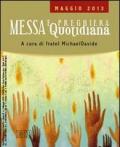
Messa quotidiana. Riflessioni di fratel ...
MichaelDavide Semeraro

Tornerà la mia estate
Andrea Falciani, Leonardo Paolo Lovari

Sindone e fede. Un dialogo possibile
Nosiglia Cesare, Repole Roberto, Ghiberti Giuseppe

Preparazione atletica negli sport di com...
Luca Martorelli

Dialoghi sull'Italia della seconda Repub...
Spina Domenico, Locilento Roger, Cesaro Fabio

Rabbia a New Orleans
James L. Burke

Lo yataghan
Anthony J. Latiffi
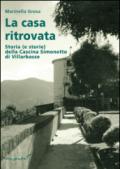
La casa ritovata. Storia (e storie) dell...
Marinella Grosa
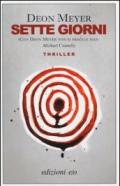
Sette giorni (Bennie Griessel)
Meyer Deon

Livorno cruciale XX e XXI. Quadrimestral...
F. Cagianelli
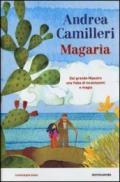
Magarìa
Camilleri Andrea






